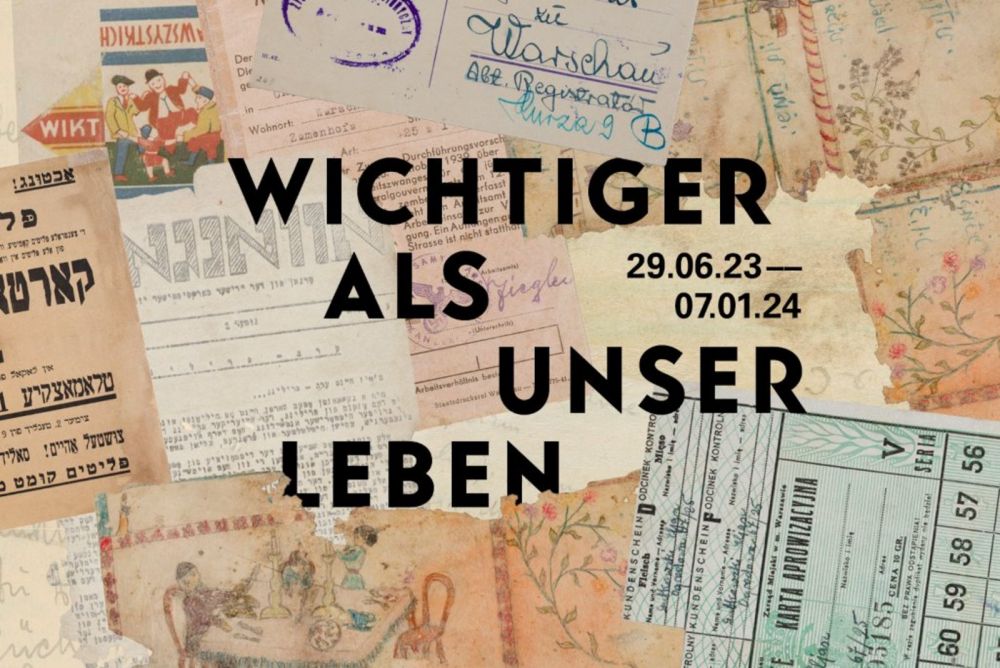- News
- Events
- Oneg Shabbat
- Collections
- Research
- Exhibitions
- Education
- Publishing Department
- Genealogy
- About the Institute
- Bookstore


The archive is preserved in the Jewish Historical Institute Warsaw and became part of the UNESCO World Cultural Heritage in 1999. It comprises some 35,000 sheets of notes, diary entries, essays, photos, drawings, official documents, and other testimony to everyday life. The original goal of Oneg Shabbat had been simply to document life in the ghetto, where Jews from Warsaw and other Polish regions, Jews deported from Germany and from countries under German occupation—including some who had converted to Christianity—as well as Roma lived alongside one another, trying to survive in the oppressively overcrowded conditions of the closed-off ghetto in the center of Warsaw. Here, as many as 450,000 people were herded together to live under inhumane conditions.
When it became increasingly clear from 1942 onwards where the German occupation policy was leading, Oneg Shabbat began to document the Shoah—the organized mass murder of European Jews in the German extermination camps in the East. The members of Oneg Shabbat, who at times numbered perhaps fifty, worked secretly. Although we do not know exactly how many people worked for Oneg Shabbat, we do know that only two of them survived the Shoah. Most of the archive was preserved, however, buried in a hiding place beneath the ruins of the ghetto.
The exhibition offers a radical inside view of the ghetto as seen from a Jewish perspective, placing the Oneg Shabbat Archive at the center and letting the documents and photos speak for themselves. In this way we gain an intense and varied picture of life, suffering, and death in the ghetto. The exhibition brings home to the viewer the act of resistance that the underground archive of the Warsaw Ghetto constituted—a never-ending, arduous, harrowing but ultimately successful attempt to write the story of the Shoah from the perspective of its victims, despite the impending obliteration of Polish Jewry.
Directors: Mirjam Zadoff (München) i Monika Krawczyk (Warsaw)
Curators: Katharina Person, Piotr Rypson, Monika Krawczyk (Warsaw), Ulla-Britta Vollhardt, Mirjam Zadoff (München)
Munich Documentation Center for the History of National Socialism / NS-Dokumentationszentrum München
Max-Mannheimer-Platz 1
80333 Munich